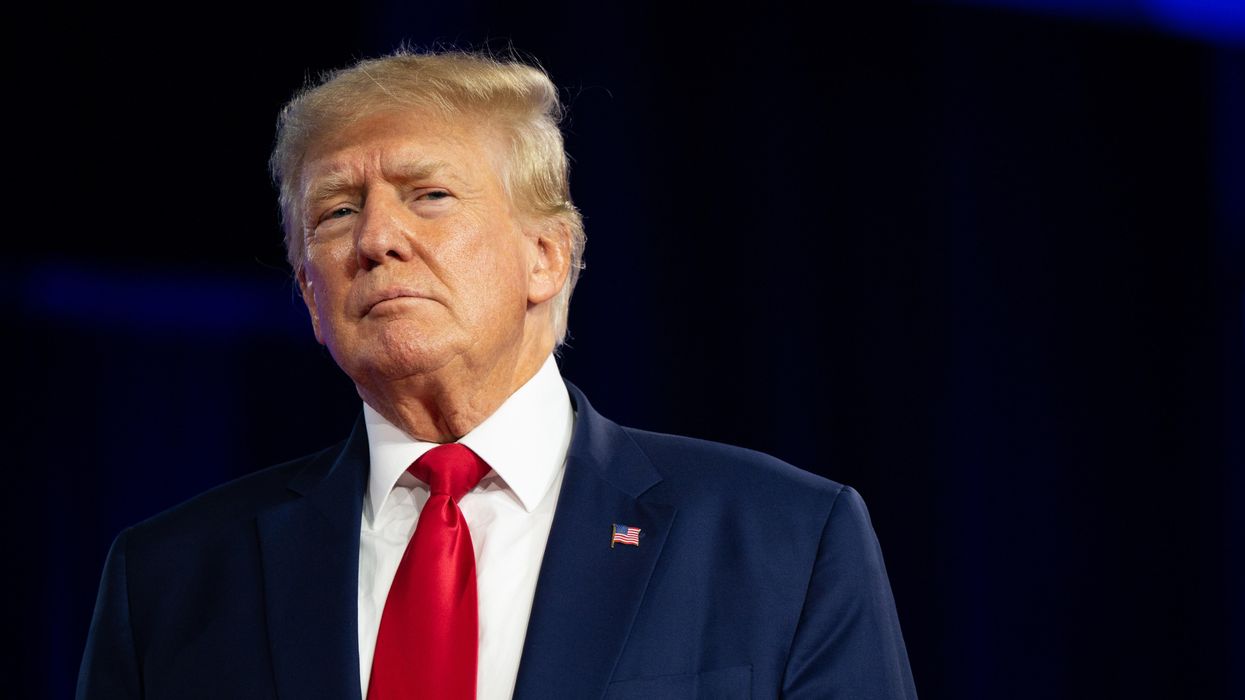Goldstone’s most recent book is "On Account of Race: The Supreme Court, White Supremacy, and the Ravaging of African American Voting Rights."
On Aug. 8, in a scene that could have been lifted from the CBS series “FBI,” a team of federal agents, some wielding automatic weapons, descended on the sprawling, opulent home of an alleged crime lord to execute a court ordered search warrant in an attempt to retrieve documents that would provide incontrovertible evidence of his misconduct. What made the scene unusual was that the target was not a Mafia kingpin but rather a former president of the United States.
In the wake of the raid, Republican leaders predictably screamed “Unfair!” and “Persecution!” although Donald Trump was being investigated for the same sort of crime, and on a much larger scale, for which they had spent years vilifying Hillary Clinton. Still, it was somehow fitting that a man who for some time has been likened to a gangland boss was finally being treated like one. And Trump’s reaction was in character. He blamed venal FBI agents and self-serving prosecutors, expressing similar outrage as previous victims of overzealous law enforcement, such as John Gotti. In addition, two days after the raid, he took the fifth during a deposition in New York – serious “Godfather” behavior.
With this latest indication that laws are not things Trump pays a good deal of attention to, except perhaps to find ways to ignore them, many on the left have been wondering if now, after years of overlooking every show of contempt for the rules and for democracy, conservatives will finally recognize that their hero is precisely what a previous conservative icon, Richard Nixon, falsely denied being — a crook.
Sorry, liberals. Conservatives already know. The problem is not a lack of awareness, or even a lack of caring. The problem is that many Trump’s supporters like that he’s a crook.
To appreciate Donald Trump’s criminal allure, one must look back almost a century to the career of Boston’s James Michael Curley. The subject of the book and the film “The Last Hurrah,” Curley, whose political life spanned almost a half-century, served four terms as mayor of Boston, four terms in Congress, and one disastrous term as Massachusetts governor, during which time he was openly and almost gleefully corrupt.
Curley didn’t always get away with it. His last stint as mayor was interrupted in 1947, when he was sent to jail for mail fraud, this after being accused of any number of other crimes, including bribery and accepting bribes, all of which bothered his supporters not one whit. Curley had been in jail before, convicted of fraud in 1904, and while ensconced in his cell, he was elected to the city’s board of aldermen. He was released from his second prison term only five months into an 18-month sentence, after supporters convinced President Harry Truman that he was in such ill health that he might not survive. Returning home, Curley was greeted by thousands of cheering supporters while a brass band played “Hail to the Chief.” Curley, fit as a fiddle, lived another 11 years.
But the secret to understanding Curley — and Trump — comes not from his behavior, but from his supporters. During Curley’s tenure in politics, Boston was a deeply divided city. The working class were mostly first- or second-generation Irish Catholics and, in the early decades of the 20th century, Boston’s working class toiled for very long hours at very low pay and endured constant maltreatment from their employers, many of whom were middle- and upper-class old-line Protestants. Living conditions for the working poor in American cities in the early 20th century were appalling: Housing was substandard and overcrowded; health care was primitive or nonexistent; air and water quality almost a guarantee of disease; crime rampant; and, in Boston, Irish immigrants were generally treated as sub-human. One of the only city institutions from which they were not barred was the jails.
Curley attacked all of those injustices with unflagging ardor. As a more recent Boston mayor, Ray Flynn, wrote in the Boston Herald, “You cannot overstate all the things Curley did, particularly in his first two terms, to improve public health, hygiene, sanitation and safety for the poor, the immigrants and the working class in the city of Boston.” And the poor loved him for it. They could not have cared less if, as Trump might have put it, he had shot someone dead in the middle of Beacon Street.
It was not just the tangible improvements that made Curley so beloved. His supporters exulted every time he stuck his thumb in the eyes of the upper-class elites, which he made certain to do regularly. Curley bullied, cajoled, threatened, sweet-talked, oiled palms, and manipulated city or state laws to get what he wanted for his constituents, making sure there was always a bit of spillover for himself.
And so, as with Trump, Mayor Curley’s supporters not only accepted that he was dishonest — they reveled in it. He might be a crook, but he was their crook.
The Curley/Trump parallel has one serious divergence, however. Unlike Curley, Trump has no loyalty to those he claims to represent. Curley was one of his own constituents, a man who had felt the same sting of bigotry as had they, and he represented them because he felt they deserved to win for once. Trump, on the other hand, has spent his life sneering contemptuously at those in whose interests he claims to work. He would sell them out in a second.
In this, Donald Trump shifts away from populist politician and back to Mafia don. Those who deal with genuine underworld figures quickly learn never to underestimate their capacity for betrayal, vindictiveness and treachery. Conservatives who blindly obey the dictates of Donald Trump will find that out the second his interests conflict with theirs.




















